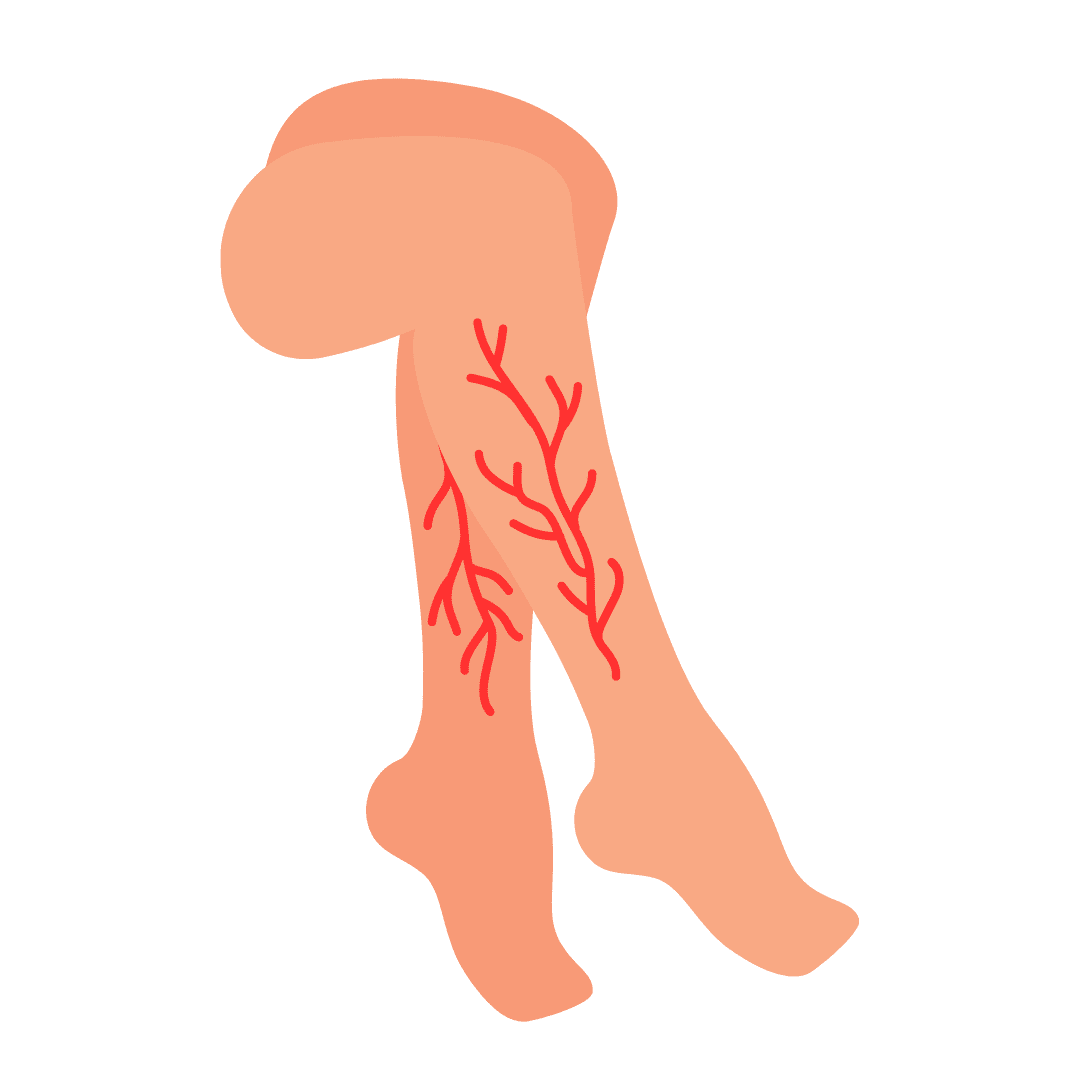Vascular Health: Caring for Your Circulatory System
Did you know your body has approximately 60,000 miles of blood vessels? With every beat of your heart, your vascular system is circulating blood throughout your whole body. Your veins are shooting oxygen and vital nutrients to where they’re needed most. If you have vascular disease, something is interrupting your blood vessels’ job.
Our vascular and interventional cardiology teams at Conway Medical Center provides surgical and non-surgical treatment options to keep you healthy.
What is Vascular Disease?
Vascular disease refers to conditions that affect the blood vessels, such as arteries and veins. It can involve issues like narrowing, blockages, or weakening of the vessels, which interrupts the blood flow throughout your body.
Some of the problems and conditions caused by vascular disease are:
- Abdominal aortic aneurysm: The aorta is your body’s main blood vessel. An abdominal aortic aneurysm means that your aorta is enlarged and could burst.
- Carotid artery disease: Your carotid arteries are in your neck. They carry blood from the heart to the brain. Carotid artery disease occurs when these arteries are narrowed by cholesterol buildup. Blocked or narrowed arteries can lead to a stroke.
- Hyperhidrosis: Excessive sweating of the underarms, hands, feet or face.
- Peripheral arterial disease: A condition where buildup in the walls of your arteries reduces the blood flow to your limbs. Read more…
- Thoracic outlet syndrome: Caused by your collarbone or first rib jamming against the blood vessels in your shoulders or neck. This is caused by trauma, repetitive injuries, pregnancy or an extra rib.
- Varicose and spider veins: Varicose veins are swollen and damaged veins that are most common in the legs and feet. Read more about varicose veins…
- Limb preservation and non-healing wounds: Most amputations are preventable. Get treatment as early as possible for non-healing injuries.
- Blood clots: Blood clots are clumps of blood that partially or completely block healthy blood flow. While they can accumulate nearly anywhere in the body, clots in the legs or arms, in particular, can cause circulation problems.
- Pulmonary embolism: A blood clot in your lung that causes shortness of breath, cough and chest pain.
- Deep vein thrombosis: A dangerous condition in which a blood clot forms in a deep vein.
Signs and Symptoms of Vascular Disease
- Persistent leg pain, cramping, or numbness may indicate peripheral artery disease.
- Swelling, discoloration, or persistent pain in limbs can signal vascular issues.
- Chest pain, shortness of breath, or dizziness may be signs of more serious vascular conditions.
When to See a Specialist
Vascular disease is often called a silent killer and presents few symptoms. It is important to see a vascular doctor to assess your risk. If you experience any of the aforementioned symptoms, consult a healthcare professional promptly. Individuals with a family history of vascular diseases or risk factors like diabetes and hypertension should be vigilant. Routine screenings become crucial, especially for those over 50 or with a history of smoking.
A vascular specialist or surgeon or and interventional cardiologist, are trained to diagnose and treat vascular conditions. Diagnostic tests such as ultrasound, CT scans, and angiography help assess blood flow and identify potential issues you may have.
How to Take Care of Your Circulation
Maintaining optimal circulation is paramount for your overall well-being. From arteries to veins, understanding how to care for your circulation is essential to helping prevent vascular disease later on.
Lifestyle Habits
- Engage in regular physical activity to promote blood flow and strengthen your cardiovascular system.
- Adopt a heart-healthy diet rich in fruits, vegetables, and whole grains while limiting saturated fats.
- Quit smoking, as tobacco use significantly increases the risk of vascular diseases.
- Reduce your alcohol intake. Alcohol contributes to weight gain and increases your cholesterol and blood pressure levels.
- Manage your diabetes. High blood sugar from diabetes can damage blood vessels and the nerves that control the heart and blood vessels.
Total Care for Your Veins & Arteries
You have options to treat vascular disease. The first step is to make healthy changes to your lifestyle. Our vascular doctors offer non-surgical options such as medication or compression therapy. However, if more extensive measures are needed, Conway Medical Center offers surgical options for a variety of conditions.
Visit the Experts
Discuss your symptoms with your primary care provider. They may determine whether it is best for you to meet with a Conway Medical Center vascular specialist or an interventional cardiologist to talk about your vascular health. We offer vascular screenings, vascular surgery, minimally invasive interventional procedures, and other treatment options to get your blood flowing like it should.
CMC’s Cardiac Care: Innovative Treatment and Compassionate Care
Interventional cardiology plays a vital role in the management of cardiovascular diseases. Its minimally invasive nature, combined with the continuous advancements in technology, allows our patients to receive effective treatments with less disruption to their lives. If you or a loved one are facing heart-related issues, consult with one of our cardiologists at CMC Cardiac Care to explore the possibilities of interventional cardiology as a treatment option. Your heart health is important, and Conway Medical Center offers innovative solutions to improve it.
Need a cardiac expert? Meet our providers.






